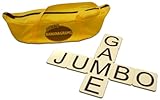Every few decades an unknown author brings out a book of such depth, clarity, range, wit, beauty and originality that it is recognized at once as a major literary event. [This] is such a work.One summer, long ago, I read the first half of an amazing book called Gödel, Escher, Bach: An Eternal Golden Braid
- Martin Gardner
Now I've discovered that a group read-through of "Gödel, Escher, Bach" is being organized through Reddit. It's being run by Rob Speer who has previously taught seminars on this book (and who has read it five times!).
What makes it amazing? It discusses Escher's art, Bach's music, and Gödel's mathematics and ties them all together. It's got puzzles and paradoxes and ponderings about the nature of consciousness. And it is terribly fun. It has a whimsical style evidenced by its wordplay and humor. The author incorporated a wonderful dialogue written by Lewis Carroll called "What the Tortoise Said to Achilles" in which the Tortoise and Achilles have a discussion which illustrates a paradox of logical inference.
Here is how it begins:
Achilles had overtaken the Tortoise, and had seated himself comfortably on its back.He then wrote similar dialogues with the Tortoise and Achilles and other characters to accompany and introduce each of the book's chapters. And these are just a fraction of the things that make this book so great!
"So you've got to the end of our race-course?" said the Tortoise. "Even though it does consist of an infinite series of distances? I thought some wiseacre or another had proved that the thing couldn't be done?"
"It can be done," said Achilles; "It has been done! Solvitur ambulando. You see, the distances were constantly diminishing; and so—"
"But if they had been constantly increasing?" the Tortoise interrupted. "How then?"
"Then I shouldn't be here," Achilles modestly replied; "and you would have got several times round the world, by this time!"
"You flatter me—flatten, I mean," said the Tortoise; "for you are a heavy weight, and no mistake! Well now, would you like to hear of a race-course, that most people fancy they can get to the end of in two or three steps, while it really consists of an infinite number of distances, each one longer than the previous one?"
"Very much indeed!" said the Grecian warrior, as he drew from his helmet (few Grecian warriors possessed pockets in those days) an enormous note-book and a pencil. "Proceed! And speak slowly, please. Short-hand isn't invented yet!"
The plan is to read the book slowly, over six months (from January to July of 2012), so even if you start a little late, there's plenty of time to catch up. Rob will post insights and discussion threads in the group forum at http://reddit.com/r/GEB.
It is a challenging book, but a rewarding one. If you have ever thought about trying to read it, this is a great opportunity to follow through.




![[French Bananagrams]](http://3.bp.blogspot.com/-qc0_1zkWFTY/UJVp8FEnQ8I/AAAAAAAAAl8/sIBlipGIDgQ/s400/FrenchBananagrams-smaller.png)
![If I stay there can be no party. I must be out there in the night, staying vigilant. Wherever a party needs to be saved, I'm there. Wherever there are words that need anagramming, I'm there. But sometimes I'm not because I'm out there in the night staying vigilant, watching, lurking, running, jumping, hurdling, sleeping. No, I can't sleep. You sleep. I'm awake. I don't sleep. I don't blink. Am I a bird? No. I'm a banana. I am Bananagrammer. Or am I? Yes, I am Bananagrammer. [applies chapstick]](http://3.bp.blogspot.com/-dSRky9uBohU/TlcvRsF73SI/AAAAAAAAAhU/sVIGfVGu7eA/s400/BGR-plot-medium.png)
